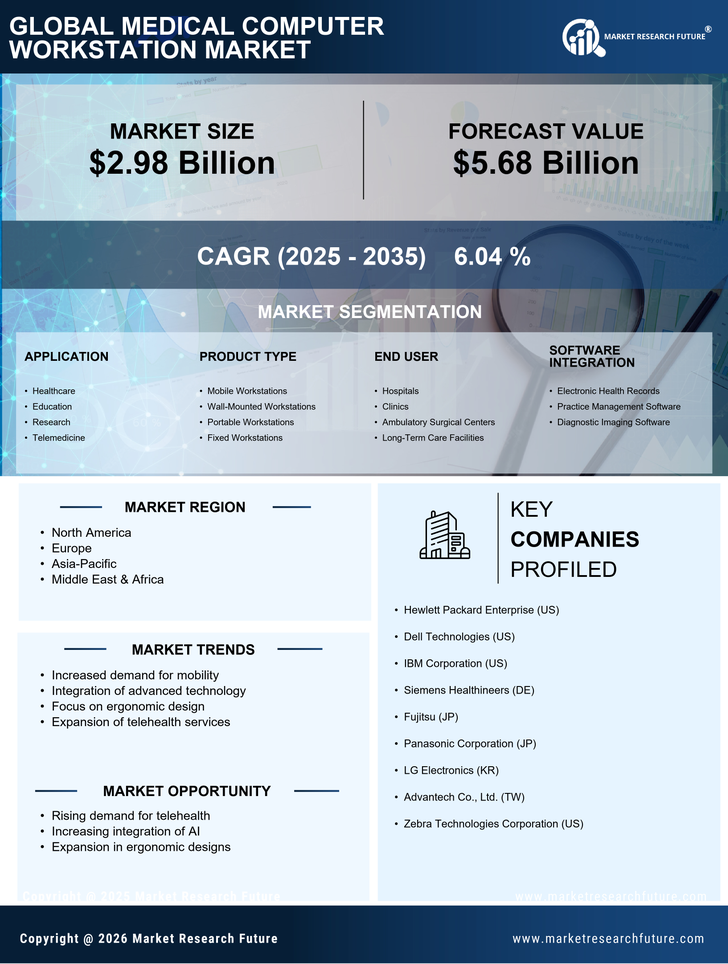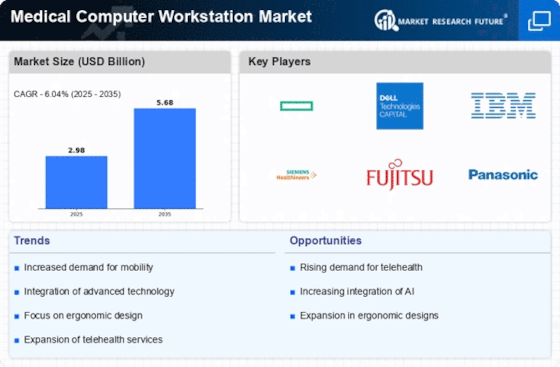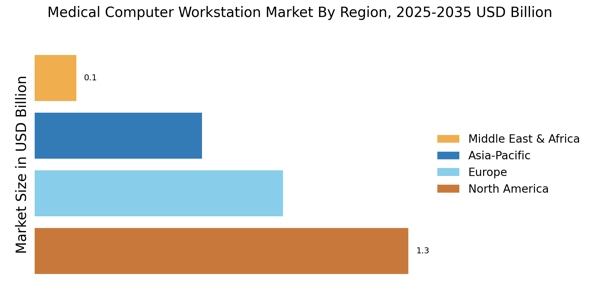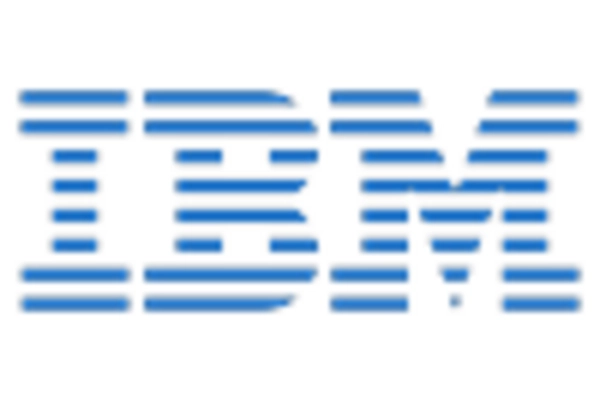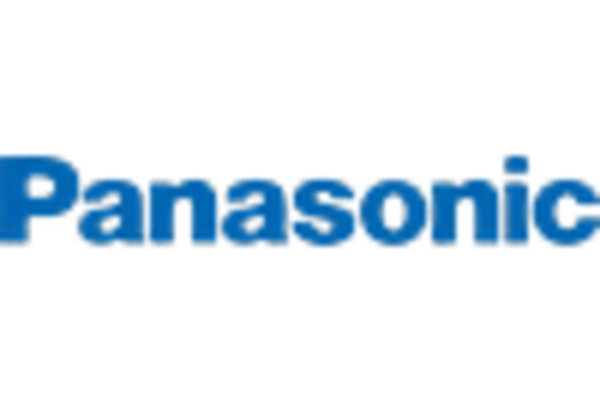Focus on Enhanced User Experience
The focus on enhanced user experience is becoming a pivotal driver in the Medical Computer Workstation Market. Healthcare professionals are increasingly seeking workstations that not only provide functionality but also prioritize usability and comfort. Ergonomic designs, intuitive interfaces, and customizable features are becoming essential attributes of modern medical computer workstations. As healthcare providers recognize the impact of user experience on productivity and job satisfaction, investments in user-friendly workstations are expected to rise. This trend may lead to a market expansion of approximately 8% annually, as organizations strive to create a more conducive working environment for their staff.
Regulatory Compliance and Standards
Regulatory compliance plays a crucial role in shaping the Medical Computer Workstation Market. Healthcare organizations are mandated to adhere to various standards, such as HIPAA in the United States, which necessitates the use of secure and compliant workstations. This regulatory landscape compels healthcare providers to invest in workstations that not only meet these standards but also enhance data security and patient confidentiality. As a result, the demand for compliant medical computer workstations is expected to rise, potentially leading to a market growth rate of around 10% annually. This trend underscores the importance of regulatory adherence in driving the Medical Computer Workstation Market.
Increased Demand for Healthcare IT Solutions
The Medical Computer Workstation Market is experiencing heightened demand for healthcare IT solutions, driven by the need for efficient patient management systems. As healthcare facilities increasingly adopt electronic health records (EHRs) and other digital tools, the requirement for specialized workstations that can support these technologies becomes paramount. According to recent data, the healthcare IT market is projected to grow at a compound annual growth rate (CAGR) of approximately 15% over the next few years. This growth is likely to propel the Medical Computer Workstation Market, as hospitals and clinics seek to enhance their operational efficiency and improve patient care through technology.
Technological Advancements in Medical Devices
Technological advancements in medical devices are significantly influencing the Medical Computer Workstation Market. The integration of sophisticated diagnostic and monitoring equipment with computer workstations enhances the capabilities of healthcare providers. Innovations such as telemedicine, artificial intelligence, and machine learning are becoming increasingly prevalent in clinical settings, necessitating workstations that can support these technologies. The market for medical devices is expected to grow at a CAGR of around 12%, which will likely drive the demand for compatible medical computer workstations. This synergy between advanced medical devices and workstations is crucial for improving patient outcomes and operational efficiency.
Aging Population and Chronic Disease Management
The aging population is a significant driver of the Medical Computer Workstation Market. As the demographic shifts towards an older population, there is an increasing prevalence of chronic diseases that require ongoing management and monitoring. This trend necessitates the implementation of advanced medical computer workstations that can facilitate better patient care and data management. Research indicates that by 2030, the number of individuals aged 65 and older will reach approximately 1.5 billion, further intensifying the demand for efficient healthcare solutions. Consequently, the Medical Computer Workstation Market is poised for growth as healthcare providers seek to accommodate the needs of this demographic.
